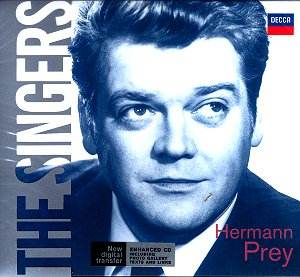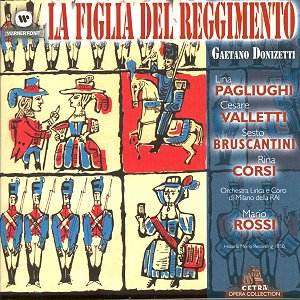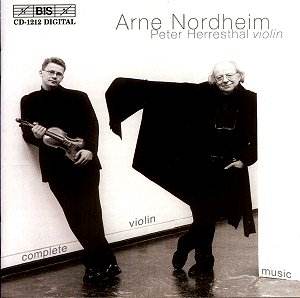 Composer: Hermann Prey
Composer: Hermann Prey
Works: Arias by Rossini & Mozart; Lieder by Schubert, Schumann, Brahms, and R. Strauss
Performers: Hermann Prey (baritone), Karl Engel (piano); Various orchestras conducted by Claudio Abbado, Georg Solti, and Karl Böhm
Recording: Britain, Austria, and Germany, 1962-71
Label: DECCA
Hermann Prey, a formidable figure in the world of lieder and operatic performance, presents an engaging survey of his artistry in the Decca release from the ‘The Singers’ series. This compilation, while modest in length at just over 64 minutes, encapsulates a significant span of his career, showcasing works that traverse the operatic and lieder repertoire. Prey’s rich vocal qualities and interpretative depth have earned him a place alongside his contemporaries, such as Dietrich Fischer-Dieskau, and this collection serves as a testament to his versatility and appeal.
The performances on this disc, spanning recordings made between 1962 and 1972, are marked by Prey’s remarkable lyricism and emotional engagement. His interpretation of Schubert’s “D799” (track 8) is particularly noteworthy; the soft, expressive nuances he brings to the phrasing reveal a deep understanding of the text’s emotional landscape. Similarly, his rendition of Schumann’s “Mein Rose” (track 2) showcases a heartrending mezza voce that captures the essence of longing and beauty intrinsic to the lieder tradition. Brahms’s “Wiegenlied” (track 14) is sheer magic, with Prey’s voice floating effortlessly above Engel’s delicate accompaniment, a moment where both singer and pianist create a palpable atmosphere of tenderness.
However, the recordings reveal some technical limitations. The sound quality of the 1962 recordings often lacks the vibrancy and depth that one might expect from contemporary standards. The flat acoustic diminishes the rich textures of the voice, particularly in operatic selections like Rossini’s “Largo al Factotum,” which, despite Prey’s scintillating delivery under Abbado’s direction, feels somewhat constrained. The balance between voice and orchestra can appear skewed, with Prey’s expressive capabilities occasionally overshadowed by instrumental forces, particularly in his portrayal of Figaro, where the more robust bass-baritones tend to dominate the character’s essence.
Prey’s operatic excerpts, including his engaging performance in “Dunque io son” alongside Teresa Berganza, reveal his interpretative prowess, though one cannot help but wish for a more expansive exploration of the operatic repertoire. Comparatively, the lushness and grandeur found in the interpretations of other baritones, such as Thomas Hampson or Bryn Terfel, highlight the limitations in both sound engineering and vocal heft in some of Prey’s performances, especially in the more demanding roles like Wolfram.
Despite these reservations, Hermann Prey’s artistry shines through. His ability to convey deep emotional truths, particularly in lieder, is consistently captivating. The interplay with Karl Engel’s piano accompaniment enriches the overall experience, creating a nuanced dialogue that enhances the lyrical beauty of the songs. The inclusion of multimedia elements in this release, while offering a modern touch, also reveals a certain idiosyncrasy in the presentation that may not appeal to purists seeking straightforward audio experiences.
This collection ultimately serves as an essential snapshot of Hermann Prey’s career, illustrating both his significant contributions to the lieder tradition and his operatic versatility. The disc stands as a valuable resource for those wishing to explore the artistry of one of the 20th century’s great baritones, even as it invites reflection on the evolution of recorded sound and performance practice.



